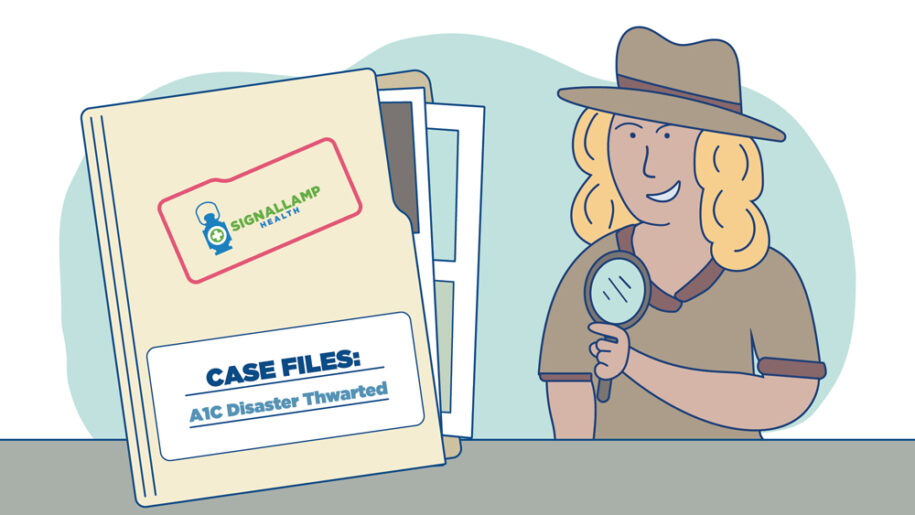
Signallamp Case Files: A1C Disaster Thwarted
Nurse case managers show how trust in chronic disease management leads to accountability
Every morning, Joan’s A1C mysteriously spiked, and nobody knew why. Not at first anyway.
Connie, a Signallamp Health remote nurse, had been helping both Joan and her husband, Harold, manage their type 2 diabetes for nearly one year, and she was surprised that Joan’s blood sugar could look so different from Harold’s.
What happened next, and other stories like this one, show the power and value that Signallamp’s remote nurse managers bring to chronic illness care. To protect their privacy, we changed the names of the people in these stories, but the facts are true.
Through regular telephone check-ins, Connie knew that Harold’s blood sugar levels remained comfortably stable. Both were compliant with their medication, and they had similar diets and routines. They should have been on nearly identical paths for managing their symptoms.
Still, every morning, Joan would test her blood to find her A1C had shot through the roof, while Harold’s levels remained stable.
Connie scheduled a check-up with Joan’s primary care provider and additional tests, but that brought no clarity.
Connie, however, never backs down from a challenge, especially when giving up could land her patient in the hospital or worse.
As a Signallamp Health remote nurse, Connie is a skilled interviewer, but she’s something else for her patients – she’s an ally in the journey toward wellness. She stands with her patients, not over them.
As time goes on, her patients learn to trust that she has their best interests at heart. It’s how she was able to start really probing Joan’s A1C mystery and stepped up her line of questioning.
Because Joan trusts her nurse manager, she confessed to Connie that, after she and Harold went to bed, she’d lie awake until he nodded off. Then, she would sneak into the kitchen for a midnight snack.
The revelation was groundbreaking for Connie, and the start of Joan’s road toward better morning A1C levels.
You can’t fake trust. Either a patient believes they can speak openly with their provider, or they don’t. But without trust, dishonesty creeps in and dilutes outcomes as it could have here.
Building trust is the same way Jamie, another Signallamp Health remote nurse, found that Rick, a patient on blood thinners, was skipping his INR tests, which show how long it takes for his blood to clot. Through a trust-based relationship with Rick, Jamie learned that he was simply afraid of catching the coronavirus. So she helped him get a home monitoring device to track his INR levels outside of the clinic.
Trust explains how Janice, also a Signallamp Health remote nurse, learned that one of her patients with chronic obstructive pulmonary disease couldn’t afford her inhaler and needed financial assistance. In fact, their relationship is how Janice learned her patient was off her medication in the first place.
Her patient’s voice sounded different, a little strained, and she heard a subtle wheezing. Janice stepped in to help her patient get the medicine she needs. They both breathe easier now.
After Joan curbed her secret midnight pantry raids, her A1C levels tamed down and she feels healthier now. She has more energy every day and is more vigilant about her eating habits. If something does start to feel off again, you can bet she will tell Connie about it first.
Contact us today to learn how we can help you forge deeper relationships and improve outcomes with your chronic disease population.
* These fields are required.

